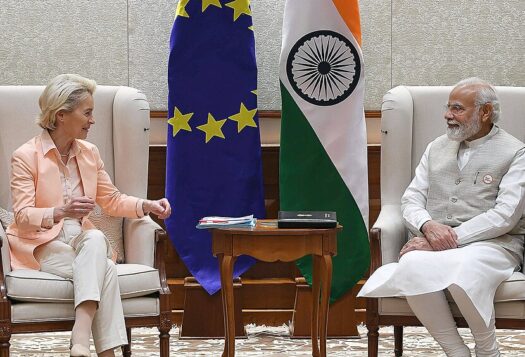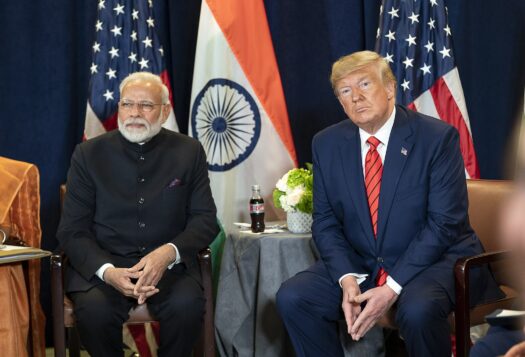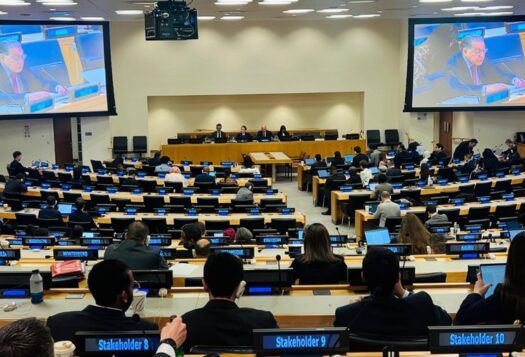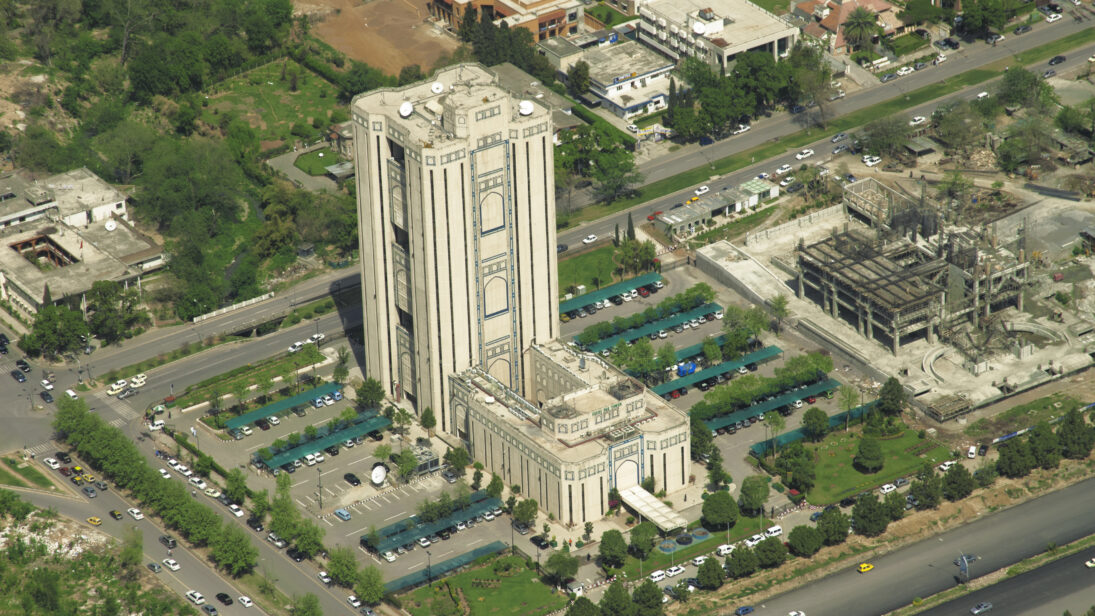
Islamabad and Riyadh have a history of strong ties largely due to religious linkages, similar historic foreign policy orientations, shared strategic interests, and economic dependencies. Pakistan’s economy is dependent on Saudi Arabia for energy imports, financial support during economic crises, and inflows of remittances. Saudi Arabia has historically benefitted from Pakistani arms transfers, strategic cooperation, and diplomatic support. In recent years, however, Saudi Arabia’s evolving foreign policy and Pakistan’s fragile security and economic outlook have created challenges in its bilateral relationship with Pakistan.
Pakistan’s ongoing economic and security crisis makes foreign investors, such as Saudi Arabia, wary of investing. Meanwhile, India provides economic potential for Saudi investments and pathways for additional cooperation, such as through the newly announced India-Middle East-Europe Economic Corridor (IMEC), though this project is currently paused due to hostilities in Israel and the Gaza Strip. Historical religious linkages in the Saudi-Pakistan relationship are unlikely to retain their salience amidst changing foreign policy and economic outlooks in the region. The economic viability of the Pakistan-Saudi relationship is crucial to propel their partnership in the coming years.
Internal Challenges
Pakistan’s relationship with Saudi Arabia is economically asymmetrical, despite longstanding security ties and similar strategic orientations. Islamabad needs to evolve from being economically dependent on Saudi Arabia to being economically valuable for Saudi investors. Security challenges, red tape bureaucracy, and infrastructure development remain domestic challenges to soliciting foreign investments. GlobalEdge, a leading global business firm, rates Pakistan’s business climate as high risk, citing “political fragility and domestic insecurity” as key drivers of its rating.
Islamabad needs to evolve from being economically dependent on Saudi Arabia to being economically valuable for Saudi investors.
Federal and provincial governments in Pakistan should collaborate on economic corridor development and keep private and public stakeholders accountable. Robust infrastructure – which includes efficient railways, roads, ports, and economically diverse urban centers – will help streamline supply chains and delivery of essential materials. Increased infrastructure development and bureaucratic accountability will enable Saudi investment projects to efficiently manage the supply chains and trust their Pakistani counterparts to materialize the projected returns on their investment. Doing so can feasibly facilitate Pakistan’s participation in IMEC down the line, which can help bolster Pakistan’s economic growth and solicit foreign investment.
Pakistan’s security sector lacks a coherent strategy to provide safety for foreign investment projects that can potentially improve Pakistan’s economy. China’s projects in Pakistan were continuously plagued by terror attacks, which made Beijing conservative about new and expanded projects. The military should enhance collaboration with provincial security forces, such as the regional police services, to protect foreign investments and assets. If Pakistan remains domestically fragile and prone to attacks from terrorist groups, foreign investors will remain wary of investments, regardless of initiatives such as the Special Investment Facilitation Council (SIFC), which seeks to attract Gulf investments in Pakistan.
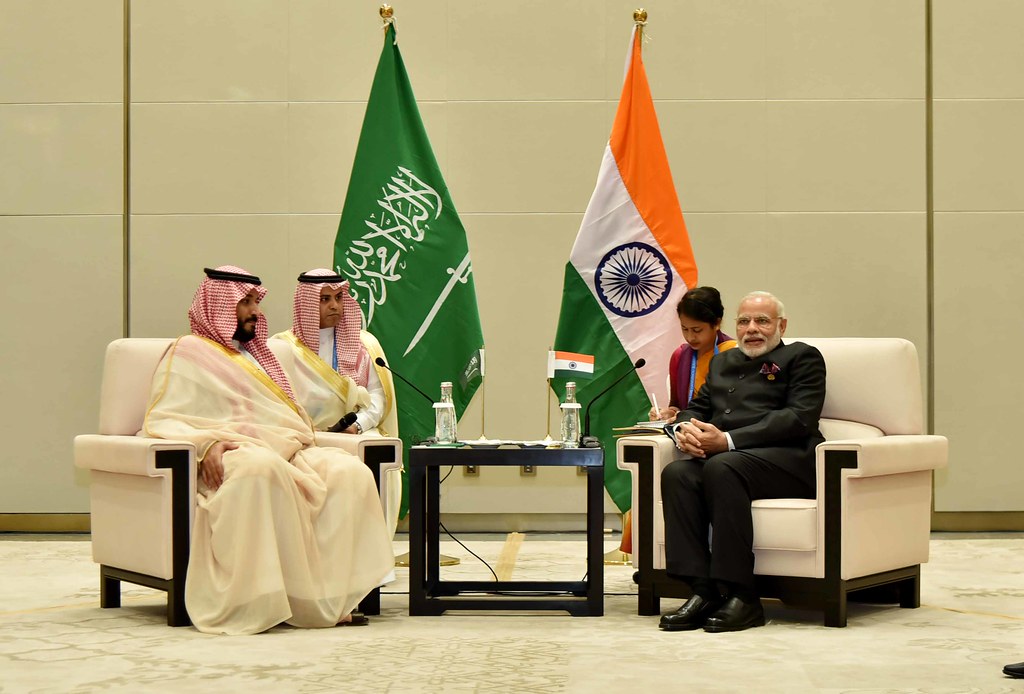
A coherent, clear security strategy should be an integral part of the SIFC. This strategic review should analyze and reflect on past mistakes. It should focus on ways to materialize inter-agency collaboration for enhanced security and accountability for security agencies responsible for protecting foreign investments. A clear, consistent security strategy showcases Pakistan’s commitment to foreign investments and its desire to become economically valuable.
Regional Challenges
India recently hosted the world’s major economic powers, including Saudi Arabia, at the G-20 summit in New Delhi. Prime Minister Modi and Crown Prince Muhammad bin Salman co-chaired the India-Saudi Arabia Strategic Partnership Council meeting at the G20. Both countries agreed to expand security and economic ties and announced the IMEC initiative, linking India with the Middle East and Europe, but excluded Pakistan.
The IMEC deal can impact Riyadh’s relationship with Pakistan by shifting Riyadh’s foreign policy considerations in South Asia from Islamabad to New Delhi. The IMEC has enormous economic potential in terms of enhancing trade and boosting regional connectivity if it can surpass recent geopolitical and logistical risks. The potential materialization of IMEC will likely convince decision-makers in Riyadh to expand its regional partnerships through greater economic and security cooperation.
Saudi Arabia’s increasing interest in India can potentially leave the Pakistan-Saudi relationship on the sidelines.
At the onset of the G-20 summit, Pakistani media speculated that Crown Prince Mohammad Bin Salman would stop in Islamabad for a brief visit after the G20. The stopover did not materialize, and despite Pakistan’s invitations, there is no indication of an upcoming Saudi visit, highlighting Saudi Arabia’s shifting regional priorities.
Although India’s booming economy and technological sector presents enormous potential, it would be in Riyadh’s favor to play a balancing game in South Asia. Pakistan has maintained close military ties with Saudi Arabia by providing extensive arms support and military training to Riyadh’s forces. The Riyadh-Islamabad partnership is also rooted in similar foreign policy orientations about strategic competition in the Middle East. For example, both countries share complexities in their relationship with Iran. Despite recent thaws in the Iran-Saudi relationship, Pakistan’s potential role as a mediator during periods of tension adds diplomatic value for Saudi Arabia. Deteriorating relations with Pakistan might come at the cost of losing the closest Muslim partner in the region with deep-rooted security and strategic ties.
Conclusion
Islamabad faces significant foreign policy challenges at this critical juncture in Pakistan’s history, particularly as Saudi Arabia realigns its geopolitical relationships in South Asia. Pakistan’s foreign policy establishment should make an effort to sustain its ties with Saudi Arabia. However, Saudi Arabia’s increasing interest in India can potentially leave the Pakistan-Saudi relationship on the sidelines. Islamabad should strengthen its ties by becoming economically valuable for Saudi Arabia and ensuring security for foreign investment projects.
Also Read: Strengthening Relations with Saudi Arabia: The Quest for Pakistan’s Economic Survival.
***
Image 1: Saudi-Pak Tower in Islamabad via Wikimedia Commons.
Image 2: Prime Minister Modi with Crown Prince Mohammed bin Salman via Flickr.
